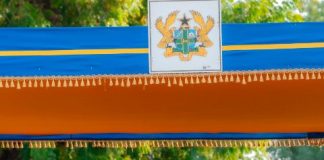Waala Naming of new born babies is one of the oldest and sensitive cultural practices of the people.
Once a child is born, a name is selected and given by the Head of the house.
Couples may also consult religious leaders before conferring a name onto their new born.
In times of uncertainties such as war, travelling, ill-health, disasters, etc where the lives of the couples was threathened, a name was chosen before the child was born.
It is also religiously(Islam) advisable to choose a name before a child is born.
One can also take a name at some stage in life after performing the necessary customary rites. For example, a hunter, farmer,
warrior, chief, etc may take a name after attaining some status in life.
A child’s name may be influenced by the period, circumstance of birth, aspirations and dreams of the parents or family.
Like many tribes in Ghana, a waala name is their identity. Each name carries special meaning and once the name is called, it reminds the people (and the bearer) of the message behind it. These names are mostly proverbial statements depicting their identity, bravery, awareness of God, Death, Jealousy, barrenness, prayers, aspirations, among other circumstances surrounding the family (immediate/extended) and the waala state. For example, Abatanie/Abata(Abatanie uŋ fare bara- You bluff because it never happen to you), Botigi (Aŋ daang Bɔtigi, a Jenpeeha?- Humans are never satisfied with what they have), Dakpan/Kpankpili (Dakpankpili kuŋ woŋ saa- An old log never gets fully drenched by rain), Kunjokuun (Daubie Kuŋjɔkuuŋ – A brave son never fear death), Datige/Lankor (Datige Lankor kuŋ laŋ nyaga – Trees may be thick in 100s but never will they have same root) etc are but few of the names.
Out of love for a deceased, some new borns are also given names of dead people. Such a name is referred to as “Yo sigraa”. These young kids are given names of past people. That is why you will often hear a parent calling the son ‘mba (my dad), calling their daughter ‘mma’ (my mother), etc. It is also believed that some of our ancestors come back to earth. When they do, signs will show, rituals/prayers are expected to be performed and the ancestor’s name re-given to the new born. For example, your great grandfather by name Mwinibinbu who died over 50 years ago may come back into the family (in the form of a new baby). When that happened, signs will show, rituals will be performed and Mwinibinbu re-given to the new born.
Names of animals are also given to human beings (rarely) to symbolise the speciality of those animals in the Waala setting.
Descendants of great warriors, hunters, farmers are given such names. Some of these names include: Gbegni(Lion), Wɔɔ(elephant), Kuri(Tortoise), Waahu(Snake), Mwaanjie (Red Monkey), Kolinkoo, etc.
The advents of Islam, Christianity, and Western education have also given way for the modernisation of names of new borns in Wa. Most of the ‘new’ Waala names are influenced by the Islam/Arabic names given to our wards. The Arabic names are translated into waali and given to the child. For Example, the names Rahama(Arabic) and Hena(waali) have the same meaning (ie favour) and can be given to one person(female). Abdul Subuur(Arabic) can be translated into waali as Kan-nyiri(waali) where a child can bear even both names. It is now not surprising to find most of our Waala folks without their traditional names. They either bear only their Islamic/Arabic names or have a translated waali versions added to their Islamic names. This applies to the Christian names too.
Nevertheless, the indigenous Waala names are special and still very relevant to the people of the Kingdom. Here are a collection of some of these names and their meaning you would want to consider for your next child.
1. Abeenkyene/Tuurosung (Abɛɛnkyɛne ka a suuhi tuuro – Evil never succeed over good)
2. Abatanie (Abatanie uŋ fare bara – You bluff because it never happen to you)
3. Adaare (Adaaren na ta, ka ba baŋ daba – You will know men on the D Day)
3. Anbakpiire (Aŋ ba kpiire? – Who will not die?)
4. Anbanbeu/Banbeu (Aŋ muoŋ banbeu?- Who knows tomorrow?)
5. Botigi (Aŋ daang Bɔtigi, a Jenpeeha? – Humans are never satisfied with what they have)
6. Baalasaana/Saana/Biekpenaa (Baala saana Biekpɛnaa – A weak stranger finds solace at the chief Palace)
7. Baalayeu (Baala yɛu suŋ mwira)
8. Badeu/Ayeba (Badeu yɛla, ayɛba)
9. Baliyau (Baliyau kuŋ balimwama)
10. Bampuori/Bampuo (Bampuori Kun Bampuo):
11. Dongmene/Domwini (Aŋ doŋmini baŋ yieme?)
12. Belinbaa/Katung (Belinbaa katuŋ):
13. Berikubo/Kubo (Naŋ bɛri e tobo kubo)
14. Bilguo (Dondoma bilguo leosuha)
15. Biripuori (Biripuori saaŋ yɛla)
16. Bonkori (Boŋ maŋ kori a laveɛla? )
17. Borri (Borri maana ninsaala)
18. Bugla (Dakuɔre baga bugulaara)
19. Buon-nyira(Mwinikuubu buon nyira)
20. Bumbuura/Banbinbu (Bumbuura Banbinbu)
21. Buombeo (Buombeo la sagebeo)
22. Dabaga (Dabaga soŋsɔli, baŋ yɛŋ kyɛ boli)
23. Dajuo (Dajuvuuraa kuŋ koŋ vaala/ Amaŋ vuuro Dajuo, oŋ vuuro vaala):
24. Dakore/Kunjaa, Gyaabie (Dakuɔre jɔra kuŋ gyaabie)
25. Dakpan/Kpankpili (Dakpankpili kuŋ wo saa)
26. Dangaabu (Dangaabu tuoŋ yeli)
27. Danyagre/Saangkuong (Danyagibeu Saaŋkuoŋ)
28. Datige/Lankor (Datige Lankor kuŋ laŋ nyaga – Trees may be thick in 100s but will never have same root)
29. Dieng-baala/Kopea (Dieŋbaala na kɔpeɛ)
30. Doma/Badaguye (Doma yela, ba da guye)
31. Sunkpana (Fuɔliyogu Sunkpana):
32. Hambagnii (Hambagnii muni kuɔŋ yilen yilen)
33. Jingsung (Jiŋsuŋ la gbieŋ):
34. Joraa (A joraa kye aŋ waana)
35. Jongare (Kataa yohu, Jongare):
36. Jiga (To kparoo na beleŋ jiga.
37. Bamfoubu (Ka e deu ba yuno, ban foubu la)
38. Wonbeo/Yelbeo (Ka nɔbeoŋ yelbeo, tobeoŋ maŋ wommaa):
39. Kaabatakanga (Kaabata kaŋa, baŋ ka ba bamaaŋ):
40. Kaapuori (Kaapuori yelkpieŋu):
41. Kandanbanbu (Kandanbanbu, ka a saŋa pariyɛ)
42. Kanbuaraa
43. Kanbanbe
44. Kandoma/Saa (Kandoma so saa, aŋ maana o yoŋ)
45. Kpeglaa (Kpegla suŋ daaŋaa):
46. Saandunee (Kpiing-bogu na Saandunee)
47. Kantubayi (Sɔbɔɔ, Kantubayi, baŋ na nyi ma)
48. Kayari/Danbiibu (Kayari na danbiibu):
49. Kunjokuun (Daubie Kuŋjokuuŋ):
50. Konnuori (Kɔng nuori laari jeni)
51. Konkoreelonga (Kɔŋkoree lɔŋa, ka saa nuŋ yɛ o tala ko):
52. Kɔnkyiinbu (Kɔnkyiinbu)
53. Puola (Kɔkɔdapuola kuŋlaŋ nyaga):
53. Saandiibu (Kuɔribaala na saaŋdiibu):
54. Langtuo (Langtuo kuŋ laŋ Jieŋaa):
55. Lanjimbu (Lanjimbu kun laŋtiaha)
56. Lankuori (Lankuori kuŋlaŋ diibu)
57. Libiri (Libiri veɛla kyɛ kɔŋ daalii)
58. Mani (Mani gaŋbu daari baŋ nyuuruu): It’s the day the ocean overflows, that they drink it water.
59. Gaanaang (Mwini binbu Gaanaaŋ)
60. Mwindingu/Nunbila (Mwindiŋu, nunbila, ebila):
61. Maali/Namaali (Namaali nie Maali e miŋa)
62. Mwini/Binbu/Mwinibinbu (Mwinibinbu kun baŋ wuri/Naamwini binbu kun baŋ wuri):
63. Mugibu (Saa tɔ duɔ, na maale mugibu):
64. Gbangu (Wɔɔ gbangu kuŋ kpɛ laa –An Elephant skin can not be contained in a bowl)
TOPPIE SAATORPIE
HSE NO: BO-BO-107, BOLI
0549633819
THANK YOU for constantly reading our stories. Kindly like, comment and SHARE stories on all social media platforms for more entertaining updates!
TO GET YOUR EXCLUSIVE INFO PUBLISHED ONLINE?
Call or WhatsApp our Editor on +233208291107/0546509004 for Your Massive promo. You can equally email your stories or articles to info@xpressghonline.com or fuzzygh2016@gmail.com and we’ll surely put them online at www.xpressghonline.com



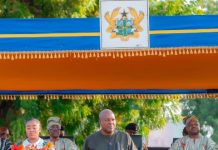
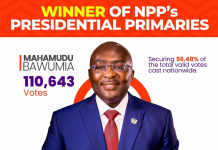
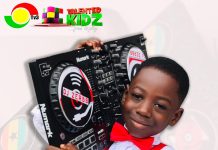
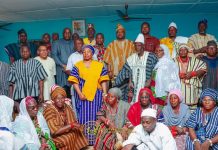
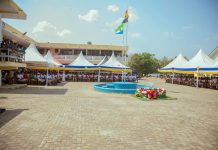
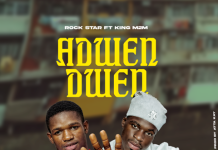



![Deenfly Ft Superboi Santana – Party Time [Prod By Asaynigi Recordz]](https://xpressghonline.com/wp-content/uploads/Deenfly-Ft-Superboi-Santana--100x70.jpg)
![Best Gally – Nubanie [Prod By Gallybeatz]](https://xpressghonline.com/wp-content/uploads/2019/05/gally1-100x70.jpg)
![Best Gally – Success [Prod By Gallybeatz]](https://xpressghonline.com/wp-content/uploads/2019/06/gally-s-100x70.jpg)
